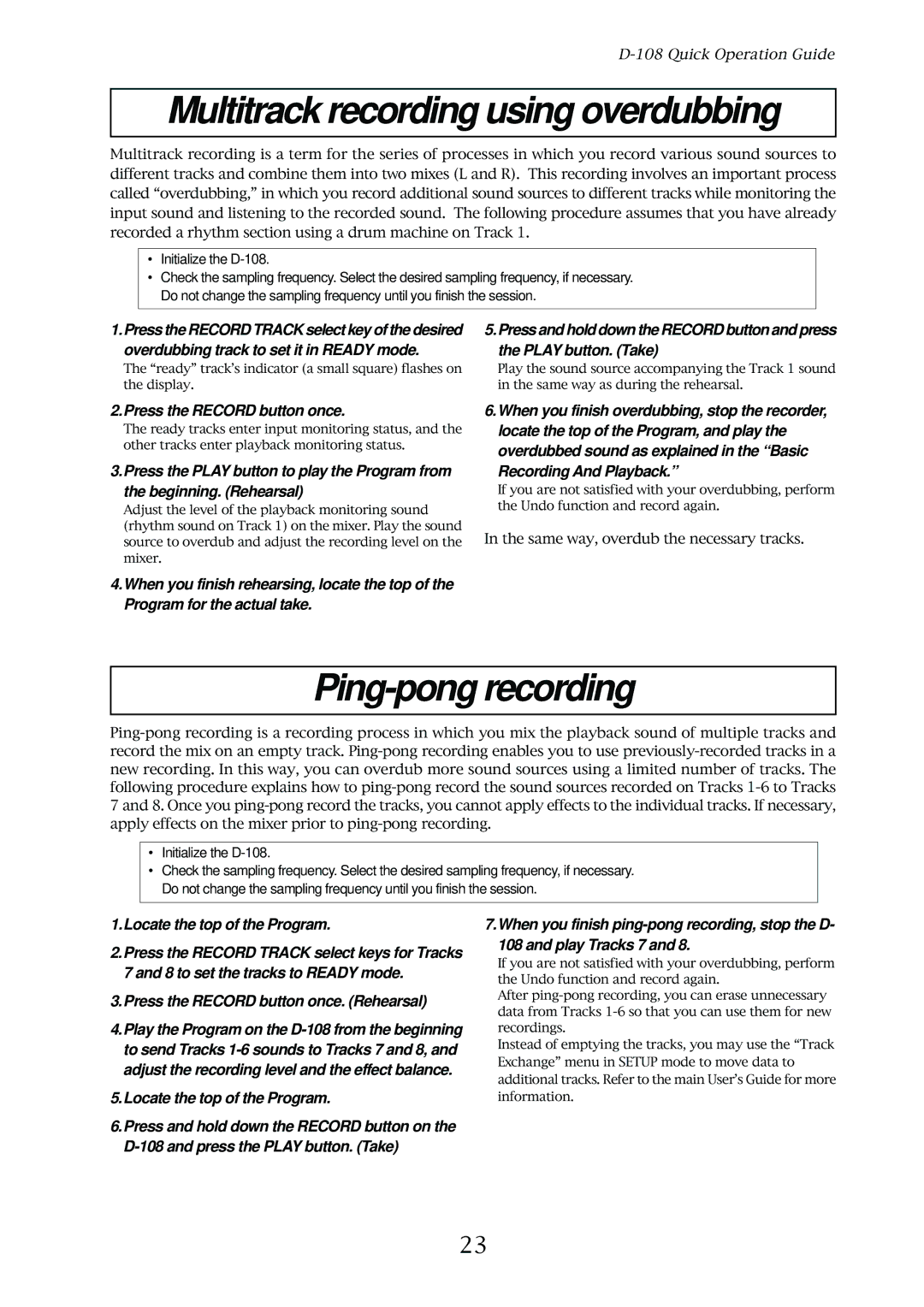
D-108 Quick Operation Guide
Multitrack recording using overdubbing
Multitrack recording is a term for the series of processes in which you record various sound sources to different tracks and combine them into two mixes (L and R). This recording involves an important process called “overdubbing,” in which you record additional sound sources to different tracks while monitoring the input sound and listening to the recorded sound. The following procedure assumes that you have already recorded a rhythm section using a drum machine on Track 1.
•Initialize the D-108.
•Check the sampling frequency. Select the desired sampling frequency, if necessary. Do not change the sampling frequency until you finish the session.
1.Press the RECORD TRACK select key of the desired overdubbing track to set it in READY mode.
The “ready” track’s indicator (a small square) flashes on the display.
5.Press and hold down the RECORD button and press the PLAY button. (Take)
Play the sound source accompanying the Track 1 sound in the same way as during the rehearsal.
2.Press the RECORD button once.
The ready tracks enter input monitoring status, and the other tracks enter playback monitoring status.
3.Press the PLAY button to play the Program from the beginning. (Rehearsal)
Adjust the level of the playback monitoring sound (rhythm sound on Track 1) on the mixer. Play the sound source to overdub and adjust the recording level on the mixer.
6.When you finish overdubbing, stop the recorder, locate the top of the Program, and play the overdubbed sound as explained in the “Basic Recording And Playback.”
If you are not satisfied with your overdubbing, perform the Undo function and record again.
In the same way, overdub the necessary tracks.
4.When you finish rehearsing, locate the top of the Program for the actual take.
Ping-pong recording
•Initialize the D-108.
•Check the sampling frequency. Select the desired sampling frequency, if necessary. Do not change the sampling frequency until you finish the session.
1.Locate the top of the Program.
2.Press the RECORD TRACK select keys for Tracks 7 and 8 to set the tracks to READY mode.
3.Press the RECORD button once. (Rehearsal)
4.Play the Program on the
5.Locate the top of the Program.
6.Press and hold down the RECORD button on the
7.When you finish
If you are not satisfied with your overdubbing, perform the Undo function and record again.
After
Instead of emptying the tracks, you may use the “Track Exchange” menu in SETUP mode to move data to additional tracks. Refer to the main User’s Guide for more information.
23
